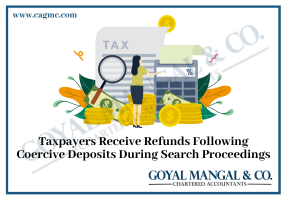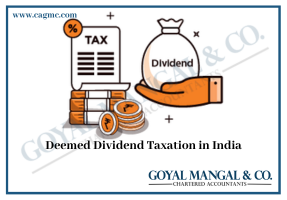
Ensuring food safety and adhering to regulatory guidelines is of paramount importance in any food-related business. The Food Safety and Standards Authority of India (FSSAI) plays a crucial role in safeguarding public health by setting and enforcing standards for food safety. If you are venturing into the food industry in India, understand the FSSAI registration and licensing fee structure and required documents. Whether you are a small-scale food business operator or a large manufacturer, this article will provide you with valuable insights to navigate the Documents required for the FSSAI registration.
|
Table of Content |
What do you mean by FSSAI?
FSSAI stands for the Food Safety and Standards Authority of India. It is an autonomous regulatory body established under the Ministry of Health and Family Welfare of the Government of India. FSSAI is responsible for ensuring the safety and quality of food products in India and setting standards for their production, processing, packaging, distribution, and import.
The primary objective of FSSAI is to protect and promote public health by ensuring that food products meet the necessary standards and regulations. FSSAI is responsible for formulating and enforcing various food safety regulations, inspecting food businesses, conducting surveillance, promoting food safety awareness, and regulating labelling and packaging requirements.
FSSAI is empowered under the Food Safety and Standards Act, 2006, which consolidates various laws and acts related to food safety in India. It harmonizes food standards and regulations in line with international standards to promote safe and hygienic food practices throughout the country.
Eligibility criteria for obtaining FSSAI registration/license
The eligibility criteria for obtaining FSSAI registration or licensing depend on the category and turnover of the food business operator (FBO). Here are the general eligibility criteria:
- FSSAI Registration:
- The annual turnover of the FBO should be up to Rs. 12 lakhs.
- The FBO should be involved in petty food business activities such as small-scale manufacturers, retailers, food stalls, etc.
- The FBO should comply with the food safety standards and regulations set by FSSAI.
- State License:
- The annual turnover of the FBO should be more than Rs. 12 lakh and up to Rs. 20 crores.
- The FBO should be involved in activities such as manufacturers, storage units, transporters, retailers, distributors, etc.
- Depending on the type and scale of operations, the FBO may require a state license.
- Central License:
- The annual turnover of the FBO should exceed Rs. 20 crores.
- The FBO should be involved in activities such as large-scale manufacturers, importers, exporters, operators in the Central Government agencies, etc.
- Depending on the type and scale of operations, the FBO may require a central license.
Documents required for the FSSAI registration/ license
There are various documents required as per specific types of registration/ licenses these are:
State Registration/Licensing
The specific documents required for FSSAI registration or licensing in the state may vary based on the category and nature of the food business. However, here are the commonly required documents:
- Form B: Completed and signed Form B (application form) with the complete address and contact details of the FBO.
- Photo ID: Identity proof of the FBO proprietor or director, such as an Aadhaar card, PAN card, voter ID, etc.
- Proof of Possession: Documents establishing the possession of the premises, such as rental agreement, utility bill, or property papers.
- Food Safety Management System Plan: For manufacturers, the FSSAI may require a detailed plan describing the food safety management system in place.
- List of Food Categories: A list of food products manufactured or handled by the FBO.
- Authority Letter: In the case of an authorized signatory, an authority letter from the FBO.
- Partnership Deed or Incorporation Certificate: In the case of a partnership or company, the relevant partnership deed or incorporation certificate may be required.
- NOC from Municipality: Some states may require a No Objection Certificate (NOC) from the local municipality or Panchayat.
- Declaration Form: A declaration form stating that the food business is compliant with the Food Safety and Standards Act, 2006.
Central Registration/ Licensing
When applying for FSSAI central registration or license, the following documents are generally required:
- Form B: Completed and signed Form B (application form) with the complete address and contact details of the FBO.
- Photo ID: Identity proof of the FBO proprietor or director, such as an Aadhaar card, PAN card, voter ID, etc.
- Proof of Possession: Documents establishing the possession of the premises, such as rental agreement, utility bill, or property papers.
- Food Safety Management System Plan: For manufacturers, a detailed plan describing the food safety management system is in place.
- List of Food Categories: A list of food products manufactured or handled by the FBO.
- Partnership Deed or Incorporation Certificate: In the case of a partnership or company, the relevant partnership deed or incorporation certificate may be required.
- Certificate of Incorporation: If the FBO is a company, a certificate of incorporation is required.
- Form IX: This is a document that designates a person responsible for ensuring compliance with the provisions of the FSSAI Act and regulations.
- NOC from Municipality: Some states may require a NOC from the local municipality or Panchayat.
- Import-Export Code (IEC): If the FBO is involved in import or export activities, a valid IEC may be required.
- Additional Documents: Depending on the specific nature of the FBO’s operations, additional documents may be required. This can include documents such as NOCs from other agencies, NOC from the Ministry of Commerce (for 100% Export Oriented Units), etc.
Fees required for the FSSAI registration/licensing
Here are certain fees required for the FSSAI registration/ license are as:
- Registration: For small-scale FBOs with an annual turnover of up to Rs. 12 lakhs, the registration fee is Rs. 100 per year. This applies to petty food manufacturers, small retailers, food stalls, etc.
- State License: For FBOs with an annual turnover of more than Rs. 12 Lahks and up to Rs. 20 crores, the state license fee ranges from Rs. 2,000 to Rs. 5,000 per year, depending on the number of years for which it is obtained.
- Central License: For FBOs with an annual turnover exceeding Rs. 20 crores, the central license fee varies from Rs. 7,500 to Rs. 75,000 per year, depending on the number of years for which it is obtained.
Takeaway
Throughout this article, we have explored the FSSAI registration and licensing fees, as well as the required documents. By understanding the different categories of FSSAI registration and licensing, you can determine the appropriate fee structure based on your business’s annual turnover. Whether you fall under the registration category for smaller businesses or the state or central license category for larger enterprises, being aware of the associated fees helps you plan and allocate resources accordingly.







